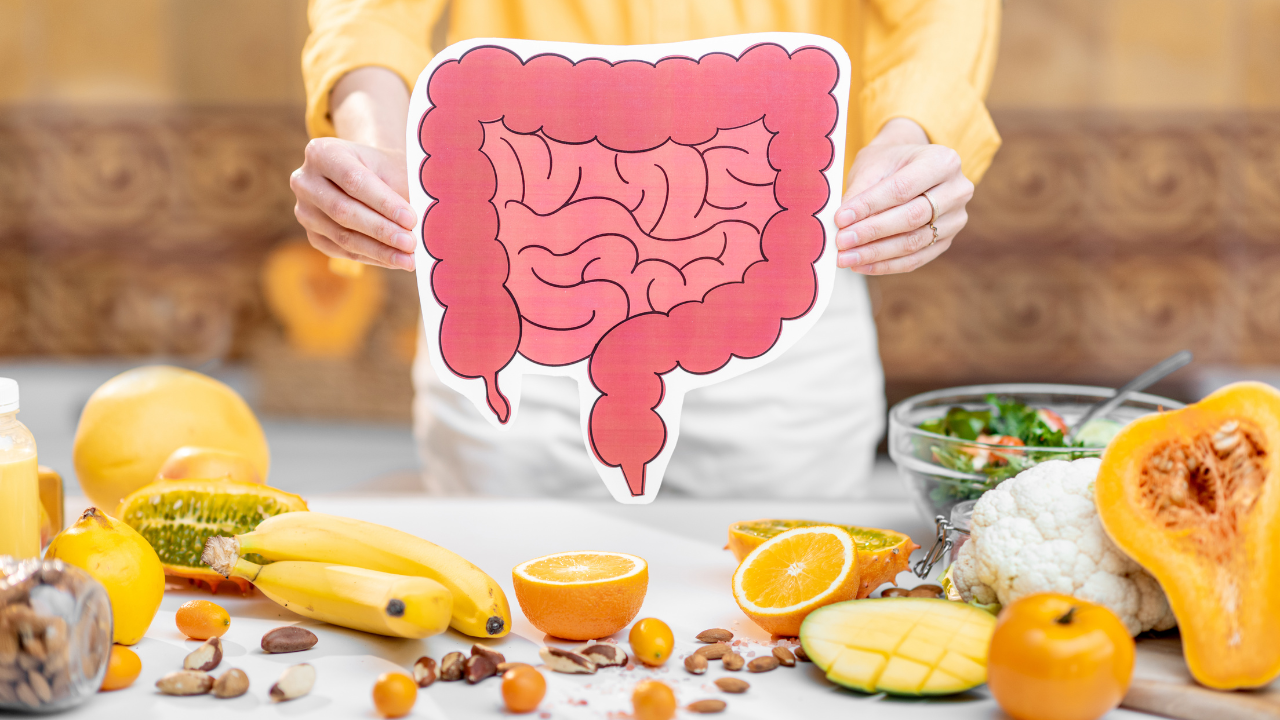
Could Gut Health Be a Missing Link in ADHD? Here’s What the Research Is Finding
Aug 24, 2025If you have a child struggling with ADHD—or you suspect something deeper is going on beneath the meltdowns, focus issues, and wild energy—you’ve probably heard the phrase: “It’s just how their brain is wired.”
But what if it’s not just about the brain?
A wave of new research is exploring how the gut microbiome—the trillions of bacteria living in our digestive tract—may play a surprisingly powerful role in attention, focus, and emotional regulation. And yes, that includes ADHD.
Let’s dig into what scientists are discovering, what this means for your child, and how gut health might become a powerful part of your toolkit—whether your child is on meds or not.
What’s the Gut-Brain Connection?
The gut-brain axis is a communication highway between the digestive system and the brain. It uses nerves (like the vagus nerve), hormones, and immune signals to send constant messages back and forth.
Your gut microbes don’t just digest food. They also:
- Make neurotransmitters (like dopamine and serotonin)
- Influence inflammation levels
- Regulate stress hormones
- Support immune function
In other words, a dysregulated gut can lead to a dysregulated brain—especially in developing kids.
What Does the Research Say About ADHD and Gut Health?
Here’s what current studies are finding:
1. Kids with ADHD Have Different Gut Microbiomes
Several studies, including one published in Scientific Reports, have shown that children with ADHD have lower levels of beneficial bacteria—like Faecalibacterium—and higher levels of microbes that may promote inflammation.
This microbial imbalance (called dysbiosis) has been linked to:
- Increased hyperactivity
- Reduced emotional control
- Lower dopamine production (critical for attention and motivation)
2. Probiotics May Help With Symptoms
Early clinical trials are promising. One 13-year follow-up study found that infants given the probiotic Lactobacillus rhamnosus GG daily for the first 6 months of life were significantly less likely to develop ADHD or autism later in childhood.
Other research shows improvements in attention, impulsivity, and even sleep when probiotic supplementation is added to the treatment plan.
3. Gut Inflammation Impacts the Brain
When the gut barrier is “leaky” (aka intestinal permeability), toxins and inflammatory molecules can enter the bloodstream—and cross into the brain. This chronic, low-grade inflammation can disrupt the brain’s ability to regulate attention and behavior.
What Causes Gut Imbalances in the First Place?
This is where it gets personal. Many of the kids I work with have a history that looks like this:
- Frequent antibiotic use (which wipes out good bacteria)
- C-section birth or lack of breastfeeding (which impacts microbiome seeding)
- High sugar or ultra-processed diets
- Chronic constipation or reflux as a baby
- Early exposure to toxins like plastics or food dyes
Over time, these factors chip away at gut health—sometimes long before behavior problems begin.
So... Can You “Fix” ADHD with Probiotics?
Not exactly. ADHD is multifactorial, and gut health is one piece of the puzzle—not the whole story. But healing the gut can make everything else work better, including:
- Medication response
- Sleep
- Focus
- Mood regulation
- Food acceptance (especially in picky eaters)
Where to Start (Without Overhauling Everything)
Here are a few practical, research-supported ways to begin improving your child’s gut-brain connection:
✅ Add Gut-Friendly Foods:
- Fermented foods like yogurt, kefir, and sauerkraut (start small!)
- Prebiotic fibers like green bananas, oats, apples, and asparagus
- Bone broth for gut lining support
✅ Avoid Gut Disruptors:
- Artificial food dyes (especially Red 40, linked to hyperactivity)
- Excess sugar and refined carbs
- Antacids, ibuprofen, and frequent antibiotics unless necessary
✅ Consider Targeted Probiotics:
Look for strains like Lactobacillus rhamnosus GG, Bifidobacterium infantis, and Lactobacillus plantarum. If you’ve done a gut test like Tiny Health, you can personalize this even more.
✅ Support Digestion:
Many kids with ADHD also have constipation or bloating. Improving motility (with magnesium, hydration, and fiber) can reduce inflammation and boost nutrient absorption.
Final Thoughts: Behavior Is a Clue, Not a Character Flaw
If your child is struggling with focus, impulsivity, or emotional outbursts, remember: it’s not about willpower. It’s about biology. And biology can be supported, healed, and rewired.
Gut health may not be a one-size-fits-all cure—but for many families, it’s a missing link they’ve never been told to explore.
Need Help Navigating Gut Health, ADHD, or Picky Eating?
We help families build resilient guts, calm nervous systems, and improve behavior—without relying solely on medications. Just email me at [email protected] to find out how.
Become part of our newsletter community where you'll find inspiration, motivation, and helpful tips so you and your family can thrive!
We hate SPAM. We will never sell your information, for any reason.

